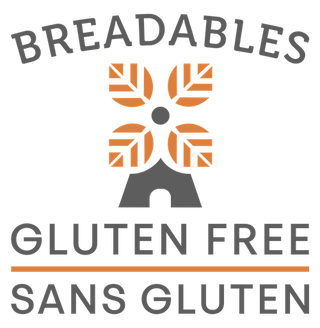Nutrition
Why does Gluten have a Bad Reputation?
Gluten elimination is becoming increasingly common as more research shows its damaging effect on health in general.
But what is the problem with Gluten? Why does it have this bad reputation?
Gluten is a protein that is found in many grains, it gives elasticity and chewiness to breads, bagels, pasta etc. It is also used as a thickener and stabilizing agent in processed/packaged foods.
Many people are sensitive to gluten, but they are NOT aware of this sensitivity, so when they eat gluten, and it reaches the digestive system it slowly starts to destroy the lining of the small intestines. The more frequently gluten is consumed the more likelihood of weakening of the intestinal lining. This can cause small holes in the lining resulting in undigested food particles and toxins being released out of the digestive tract and into the blood stream where they do not belong.
When these food particles enter the blood stream the Immune system thinks it is a dangerous substance and produces antibodies to attack it (think Auto Immune Disease). This is where the problem shows up as symptoms of gas, bloating, unformed bowels, abdominal discomfort, fatigue after meals, low energy, brain fog etc. and this for many people can be the start of excess inflammation and even Auto Immune Disease.
As you know most health conditions start in the gut, and since many Gluten sensitive people do not know that they are sensitive to it or choose not to eliminate gluten from their diet the problem gets exasperated and Gluten induced gastrointestinal damage is seen as well as Auto Immune diseases, e.g., Hypothyroidism where due to the imbalance in the digestive system critical nutrients needed for the optimal functioning of the thyroid gland are not available. Or Joint pain, eating gluten daily can create a state of chronic inflammation and this inflammation can cause damage and cause pain and stiffness in the joints.
There are many other health conditions worsened by gluten intake, but that is for another day.
I know what you are thinking...
"But our ancestors ate gluten, and they didn’t have these problems so what’s changed now?"In North America, the agriculture focus for many years has been to grow wheat that is drought resistant, bug resistant and faster growing so what we are eating is a Hybridized grain. Hybridized grain has ‘new’ proteins that the original wheat plants did not have, and these new proteins are thought to be the cause of gluten sensitivity, higher rates of celiac disease and increased inflammation and disease.
The quality of wheat we are eating today is much different from the wheat our ancestors ate and the quantity we are consuming is much higher than what they had, and these are the reasons that gluten sensitivity has increased substantially in the last 50 years.
So where is Gluten found?
Gluten is a family of proteins found primarily in grains like Wheat (including semolina, durum wheat, kamut, spelt, farina, bulgar, matzo, couscous and more), Rye, Barley, Malt and Brewers Yeast.
Gluten may also be found in:
Oats, ketchup, malt flavouring, seasonings, sauces, dips, dressings, food starch, energy bars, puddings, flavoured potato chips, canned soups etc.
Gluten may be hiding under the following names in packaged foods:
Hydrolysate, Natural flavouring, Hydrolyzed soy protein, Hydrolyzed vegetable protein, brown rice syrup, caramel colour, yeast extract, modified food starch, fermented grain extract and more.
What can I do to determine if I am sensitive to Gluten?
- You can talk to your natural health practitioner for testing options
- As a starting point you can eliminate Gluten for 3 weeks and see how you feel. If it makes no difference to your overall well being then likely you are not sensitive to it. But if eliminating Gluten positively impacts your health than you can send me a thank you note!


0 comments